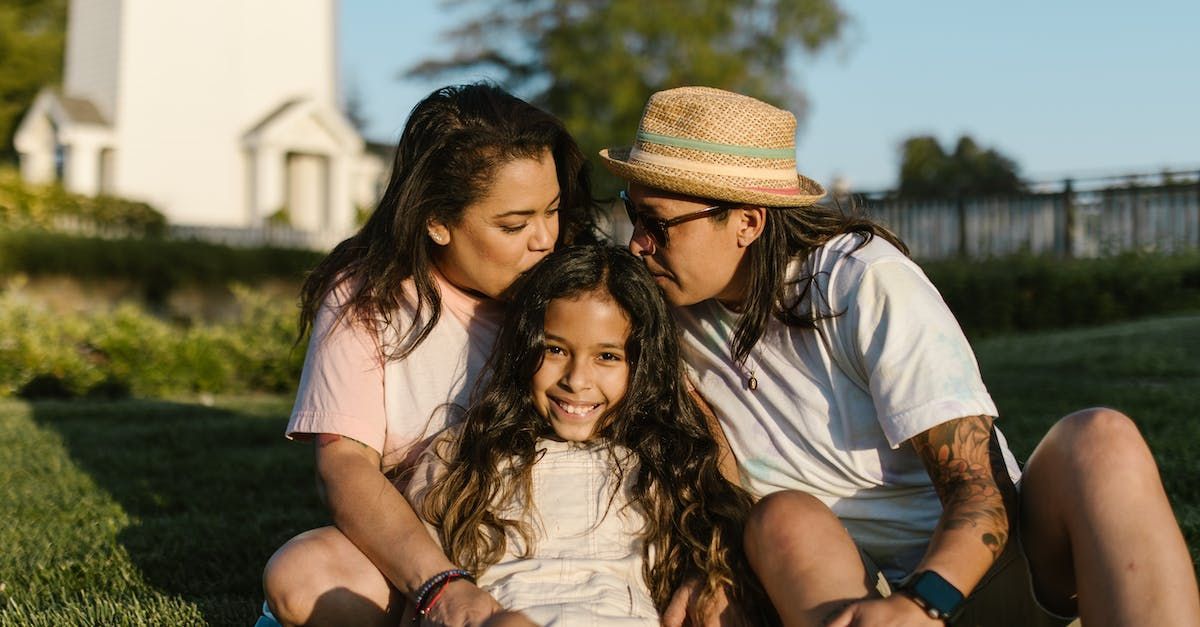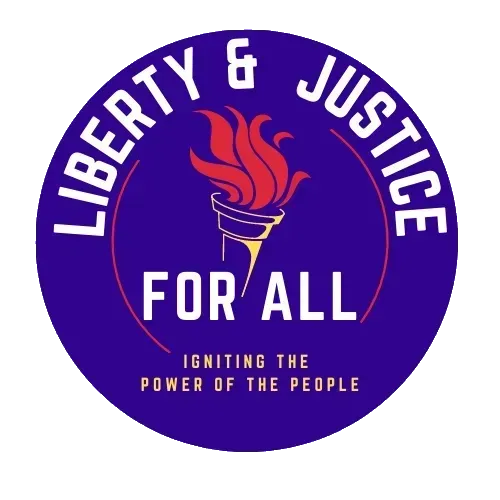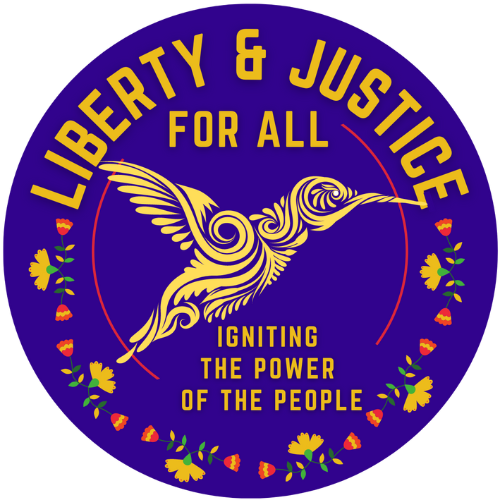Indigenous Peoples Rights
Liberty and Justice For All affirms and fully supports the American Declaration on the Rights of Indigenous Peoples; taking into account the significant contribution Indigenous peoples have made and continue to make to humanity.
For six-hundred years we have lived under the misconception that Columbus discovered America.
What he did was stumble on a land already occupied by many people and many nations.
In the center of that land were a people who call themselves Oyate: "the People." This is their story, in their words.
Oceti Sakowin:
The People of the Seven Council Fires
This is the first 10 minutes of a one-hour documentary entitled Oceti Sakowin: The People of the Seven Council Fires. Here is what it is about. For six-hundred years we have lived under the misconception that Columbus discovered America. What he did was stumble on a land already occupied by many people and many nations. In the center of that land were a people who call themselves Oyate: the People. This is their story, in their words.
For more information, log on to SDPB.org
Tribes in South Dakota
Federally recognized tribes
- Yankton Sioux Tribe of South Dakota
- Rosebud Sioux Tribe of the Rosebud Indian Reservation
- Sisseton-Wahpeton Oyate of the Lake Traverse Reservation
- Oglala Sioux Tribe
- Lower Brule Sioux Tribe of the Lower Brule Reservation
- Crow Creek Sioux Tribe of the Crow Creek Reservation
- Flandreau Santee Sioux Tribe of South Dakota
- Cheyenne River Sioux Tribe of the Cheyenne River Reservation
State recognized tribes
- None
The American Declaration on the Rights of Indigenous Peoples

On June 15, 2016, after nearly 30 years of advocacy and negotiation, the Organization of American States (OAS) adopted the
American Declaration on the Rights of Indigenous Peoples. The OAS is a regional intergovernmental organization of 35 member countries of the Americas, including the United States.
The American Declaration offers specific protection for indigenous peoples in North America, Mexico, Central and South America, and the Caribbean. It affirms the right of self-determination, rights to education, health, self-government, culture, lands, territories and natural resources, and it includes provisions that address the particular situation of indigenous peoples in the Americas, including protections for those living in voluntary isolation and those affected by a state’s internal armed conflict. Article VII of the Declaration addresses Gender Equality, and includes a commitment that “States shall adopt the necessary measures, in conjunction with indigenous peoples, to prevent and eradicate all forms of violence and discrimination, particularly against indigenous women and children.”
The American Declaration is a comprehensive, regional human rights instrument and it will become one of the most important instruments of the Inter-American Human Rights System. Both the Inter-American Commission on Human Rights and the Inter-American Court of Human Rights will interpret the Declaration to provide content to other instruments, such as the American Convention on Human Rights – the main regional human rights treaty, and the American Declaration of Rights and Duties of Man.
Throughout the negotiations, the Center played a key role in hosting preparatory meetings ahead of the negotiations with indigenous peoples from the Americas, developing proposals and strategies, and providing legal support to indigenous leaders attending the negotiations.
RESOURCES:
Statement of the Indigenous Nations and Organizations Coalition to the Organization of American States' 53rd General Assembly | Español (June 21, 2023)
Statement of the Indigenous Nations and Organizations Coalition to the Organization of American States' 52nd General Assembly | Español (October 5, 2022)
OAS decision to extend the Plan of Action of the American Declaration on the Rights of Indigenous Peoples | Español (November 12, 2021)
Statement of the Indigenous Nations and Organizations Coalition to the Organization of American States' 51st General Assembly | Español (November 9, 2021)
Statement of the Indigenous Nations and Organizations Coalition to the Organization of American States' 50th General Assembly | Español (October 19, 2020)
OAS decision on the Implementation of the American Declaration on the Rights of Indigenous Peoples | Español (June 28, 2019)
OAS decision on Effective Participation of Indigenous Peoples and Peoples of African Descent | Español (June 27, 2019)
Statement of the Indigenous Coordination of Abya Yala | Español (June 26, 2019)
Statement of the Indigenous Nations and Organizations Coalition to the Organization of American States' 49th General Assembly | Español (June 26, 2019)
Statement of Armstrong Wiggins to OAS during Inter-American Week of Indigenous Peoples | Español (August 10, 2018)
OAS decision on Inter-American Week of Indigenous Peoples and Monitoring Mechanism | Español (June 4, 2018)
Statement of the Indigenous Peoples and Nations Coalition to the Organization of American States' 48th General Assembly | Español (June 4, 2018)
Indigenous leaders call for the implementation of the American Declaration on the Rights of Indigenous Peoples | Español (June 20, 2017)
Statement of the Indigenous Peoples and Nations Coalition to the Organization of American States’ 47th General Assembly | Español (June 19, 2017)
Plan of Action of the American Declaration on the Rights of Indigenous Peoples (2017-2021) | Español (June 14, 2017)
American Declaration on the Rights of Indigenous Peoples | Español (January 17, 2017)
Strategies for implementing the new American Declaration on the Rights of Indigenous Peoples
Working Group to Prepare the Draft American Declaration on the Rights of Indigenous
OAS adopts new Declaration on the Rights of Indigenous Peoples
Armstrong Wiggins Appeals to the OAS to Implement the American Declaration
The Inter-American System of Human Rights

A Few Indigenous Resources
-
National Congress of American Indians (NCAI )List Item 3
NCAI was established in 1944 in response to the termination and assimilation policies the US government forced upon tribal governments in contradiction of their treaty rights and status as sovereign nations. To this day, protecting these inherent and legal rights remains the primary focus of NCAI.
NCAI Mission
Protect and enhance treaty and sovereign rights.
Secure our traditional laws, cultures, and ways of life for our descendants.
Promote a common understanding of the rightful place of tribes in the family of American governments.
Improve the quality of life for Native communities and peoples.
NCAI History
The Founding Meeting of NCAI:
The 1944 Constitutional Convention – Denver, 1944
In Denver, Colorado, in 1944, close to 80 delegates from 50 tribes and associations in 27 states came together to establish the National Congress of American Indians at the Constitutional Convention. Founded in response to the emerging threat of termination, the founding members stressed the need for unity and cooperation among tribal governments and people for the security and protection of treaty and sovereign rights. The Founders also committed to the betterment of the quality of life of Native people.
-
Native American Rights Fund (NARF)List Item 2
Our Mission: The Native American Rights Fund holds governments accountable. We fight to protect Native American rights, resources, and lifeways through litigation, legal advocacy, and legal expertise.
Since 1970, the Native American Rights Fund (NARF) has provided legal assistance to Native American tribes, organizations, and individuals nationwide who might otherwise have gone without adequate representation. NARF has successfully asserted and defended the most important rights of Indians and tribes in hundreds of major cases, and has achieved significant results in such critical areas as tribal sovereignty, treaty rights, natural resource protection, voting rights, and Indian education.
Since NARF’s inception, Indian law has changed dramatically. It has become a recognized specialty with a well-documented body of statutes and case law. However, that has not made it a simpler field. In the 1970’s and the early 1980’s, courts were generally receptive to Indian rights cases. However, since the mid to late 1980’s, an increasingly conservative federal bench has made Indian rights cases more difficult to win. Combined with the huge cost of litigation—in time and in money—this means NARF and its Indian clients are always attuned to opportunities for negotiation, consensus, and settlement.
With credibility built over more than 50 years of service, NARF has become a respected consultant to policy makers and others engaged in drafting legislation. As a consensus builder, NARF works with religious, civil rights, and other Native American organizations to shape the laws that will help assure the civil and religious rights of all Native Americans. NARF attorneys, many of whom are tribal citizens, use their understanding of Indian legal issues to assist tribes in negotiating with individuals, companies, and governmental agencies.
NARF is a non-profit 501c(3) organization that focuses on applying existing laws and treaties to guarantee that national and state governments live up to their legal obligations.
NARF is headquartered in Boulder, Colorado, with branch offices in Washington, DC, and Anchorage, Alaska.
NARF is governed by a volunteer board of directors composed of thirteen Native Americans from different tribes throughout the country with a variety of expertise in Indian matters.
A staff of more than 20 attorneys handles more than 60 major cases at any given time, with most of the cases taking several years to resolve.
Cases are accepted on the basis of their breadth and potential importance in setting precedents and establishing important principles of Indian law.
-
NDN CollectiveList Item 4
DEDICATED TO BUILDING
INDIGENOUS POWER
NDN Collective is an Indigenous-led organization dedicated to building Indigenous power. Through organizing, activism, philanthropy, grantmaking, capacity-building and narrative change, we are creating sustainable solutions on Indigenous terms.
-
Indian Law Resource CenterList Item 1
The Center provides legal assistance to indigenous peoples of the Americas to combat racism and oppression, to protect their lands and environment, to protect their cultures and ways of life, to achieve sustainable economic development and genuine self-government, and to realize their other human rights.
The Indian Law Resource Center seeks to overcome the grave problems that threaten Native peoples by advancing the rule of law, by establishing national and international legal standards that preserve their human rights and dignity, and by challenging the governments of the world to accord justice and equality before the law to all indigenous peoples of the Americas.
The Indian Law Resource Center is a non-profit law and advocacy organization established and directed by American Indians. We provide legal assistance to Indian and Alaska Native nations who are working to protect their lands, resources, human rights, environment and cultural heritage. Our principal goal is the preservation and well-being of Indian and other Native nations and tribes.
Founded in 1978, the Center provides assistance to Indian nations and indigenous peoples in the United States and throughout the Americas. The Center has an international Board of Directors, and is a Non-Governmental Organization in consultative status with the United Nations Economic and Social Council. The Indian Law Resource Center is a tax-exempt organization under section 501(c)(3) of the Internal Revenue Code. We are funded by grants and contributions from individuals, foundations, and Indian nations.
-
American Indian College Fund
The American Indian College Fund is a nonprofit organization that helps Native American students, providing them with support through scholarships and funding toward higher education.

